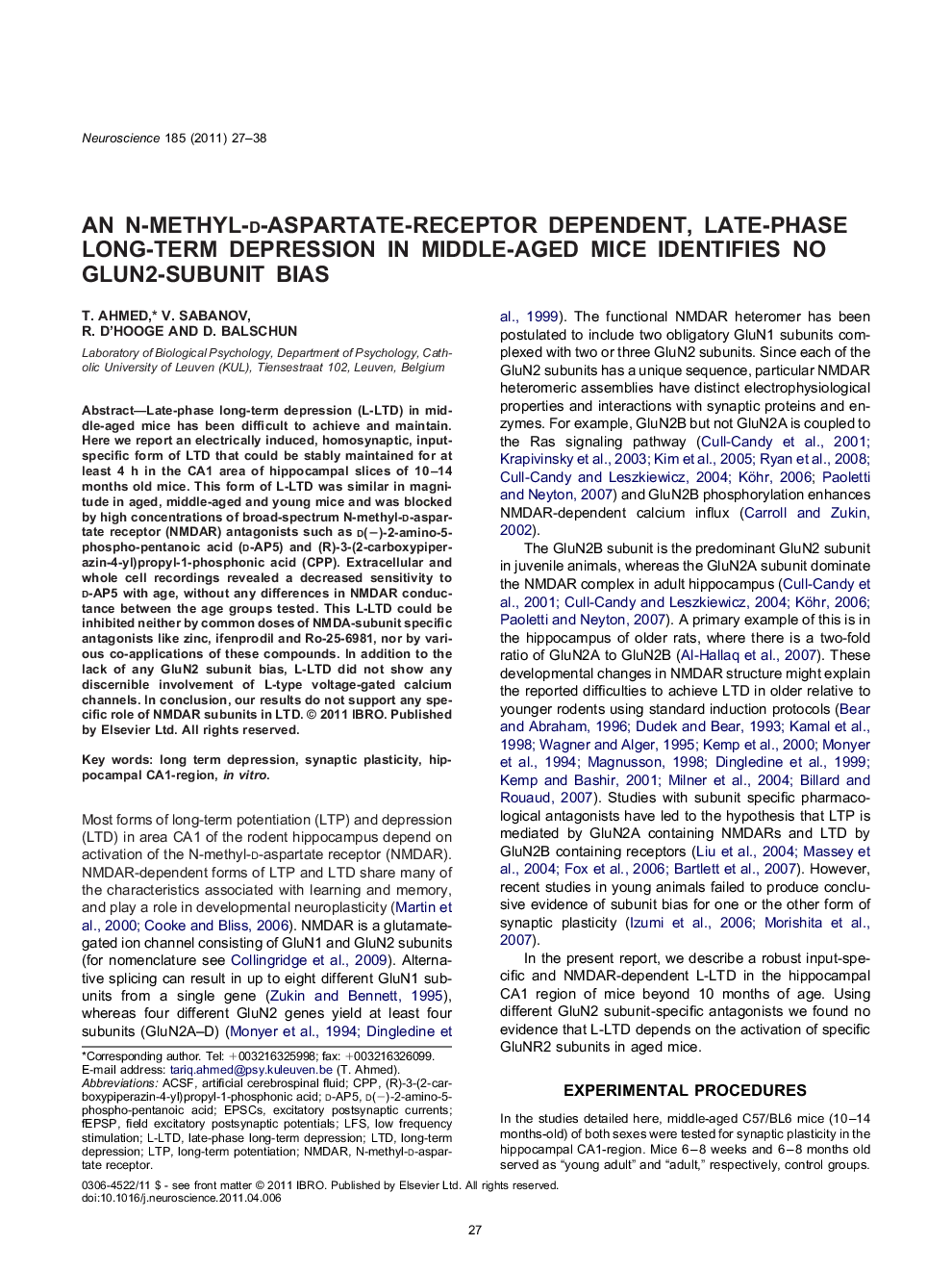| کد مقاله | کد نشریه | سال انتشار | مقاله انگلیسی | نسخه تمام متن |
|---|---|---|---|---|
| 4338889 | 1614891 | 2011 | 12 صفحه PDF | دانلود رایگان |

Late-phase long-term depression (L-LTD) in middle-aged mice has been difficult to achieve and maintain. Here we report an electrically induced, homosynaptic, input-specific form of LTD that could be stably maintained for at least 4 h in the CA1 area of hippocampal slices of 10–14 months old mice. This form of L-LTD was similar in magnitude in aged, middle-aged and young mice and was blocked by high concentrations of broad-spectrum N-methyl-d-aspartate receptor (NMDAR) antagonists such as d(−)-2-amino-5-phospho-pentanoic acid (d-AP5) and (R)-3-(2-carboxypiperazin-4-yl)propyl-1-phosphonic acid (CPP). Extracellular and whole cell recordings revealed a decreased sensitivity to d-AP5 with age, without any differences in NMDAR conductance between the age groups tested. This L-LTD could be inhibited neither by common doses of NMDA-subunit specific antagonists like zinc, ifenprodil and Ro-25-6981, nor by various co-applications of these compounds. In addition to the lack of any GluN2 subunit bias, L-LTD did not show any discernible involvement of L-type voltage-gated calcium channels. In conclusion, our results do not support any specific role of NMDAR subunits in LTD.
▶A late phase NMDAR-dependent LTD can be generated in middle-aged mice. ▶In middle-aged mice this NMDAR-LTD is insensitive to common doses of d-AP5 (50 μM) but sensitive to 100 μM d-AP5 and 10 μM CPP. ▶Antagonism with GluN2 subunit specific inhibitors alone or in combination failed to block the LTD.
Journal: Neuroscience - Volume 185, 30 June 2011, Pages 27–38